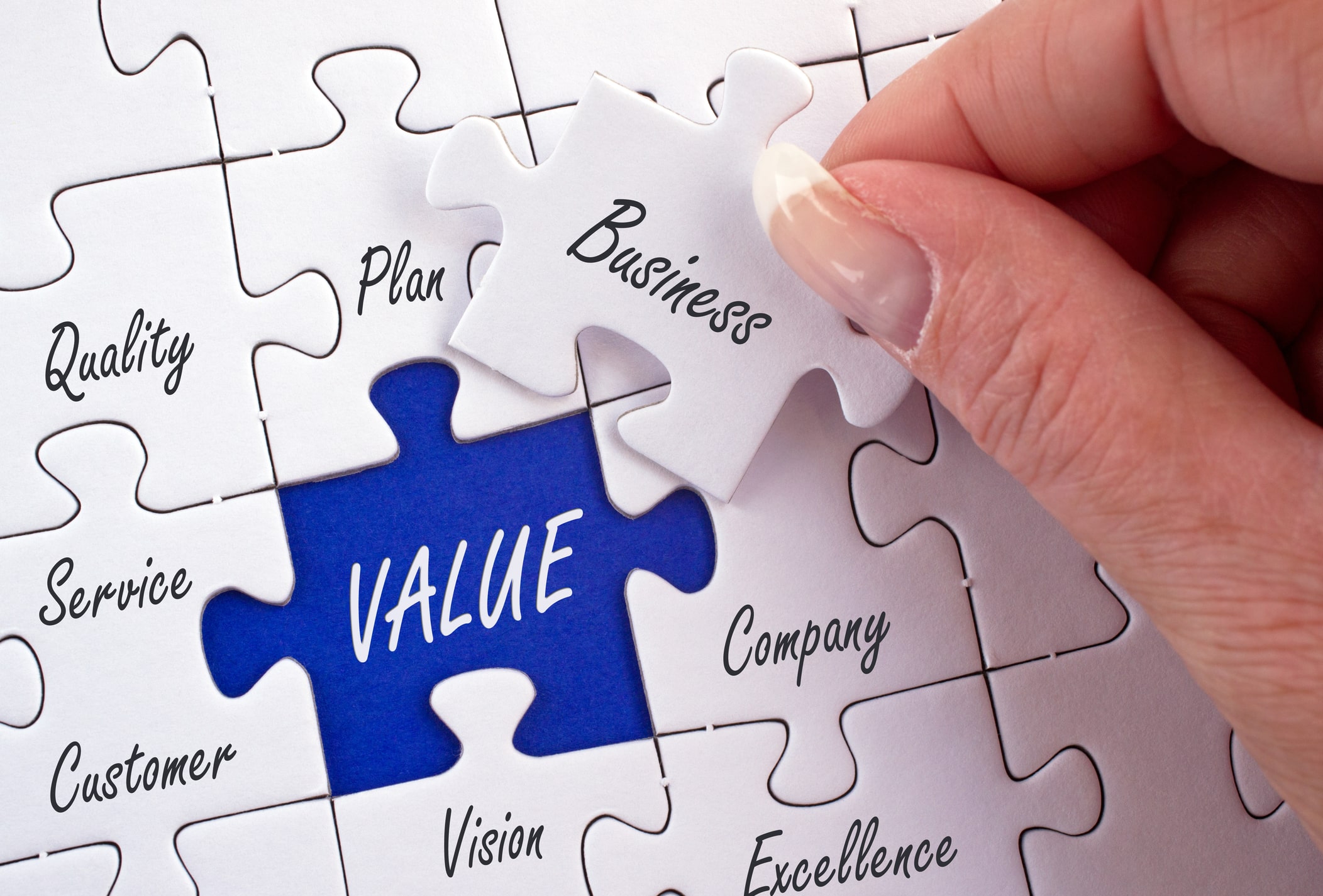Executive Report

When owners, CEOs, and business executives discuss valuation, they rarely look beyond financial assets, figures, and statements. However, when looking to sell a business, there is much more involved in the valuation process. As a business owner, you must understand the concepts of business value and personal value – and how they relate to your exit strategy.
What is Business Value?
Is there an official definition of business value? While a generic summary may say something along the lines of, “all tangible and intangible aspects of a company that determine the long-term success of a business,” what does that really mean? Those words are nothing more than a broad analysis of a generic business.
To truly determine an individual business’ value, you must look at it with the end in mind. Here are a few questions to ask regarding your business:
What systems and processes are currently in place? This is a very broad question that needs to be narrowed down to the focus of your business. Depending on the industry you’re in, the products or services you produce, and how intensive the research and development process is, this question may be minimally important or extremely relevant. In most cases, the latter is true. Are the systems and processes you currently have in place stable enough to stand the test of time? If not, can they easily adapt to new technologies and demands?
How long have customer relationships been in place? While the quantity of customer accounts is important, the quality is arguably more powerful. A company which has had the same 15 customers for 50 years is probably more valuable than a company which has 30 customers, only one of which has been around for more than a year. Long-term customer relationships are indicative of a healthy business.
Do you have brand equity? Any company can experience temporary success after launching a popular product or receiving some market recognition. However, does it translate into any real brand equity? After an individual product phases out or your company loses a member of management, will your brand continue without being detrimentally affected? Having brand equity will allow your business to survive challenging circumstances that weaker brands can’t weather.
How focused on a particular product or niche is your business? Truly valuable businesses are able to expand their reach beyond a specific product or niche. This ensures future stability, regardless of uncontrollable external circumstances. Does your business follow the model of GE, which touches a variety of industries, or does it fail to diversify like Blockbuster did?
Is your business poised for future growth? This question is a combination of the previous four. If you have sustainable systems and processes in place, have long-term customer relationships, possess brand equity, and aren’t limited to a single niche, you are probably poised for future growth – which is indicative of high business value.
How to Increase Business Value
Increasing business value is all about stabilizing healthy factors and fixing issues that are detrimental to the value of the brand. While the specific steps will be different for each business, the goal should always be to create a sustainable business with positive cash flow and healthy brand equity. Corporate governess documents, contracts, and employee agreements are all things that can be fixed to add value. Above all else, though, you need to ensure sales are growing and systems are being used to increase automation and drive R&D.
What is Personal Value?
Personal value goes hand in hand with the concept of mental readiness. What value do you, on a personal basis, glean from your business? When you are eventually prepared to leave, will the sale of your business provide you with the security, comfort, and satisfaction you need? This intangible value is as much about finances as it is peace of mind. Your business is exponentially more valuable when you can combine true business value with personal satisfaction. When determining the personal value of your business, consider the following questions:
Will your business provide enough to protect your future lifestyle? The personal value of your business, while not focused on finances, is closely intertwined with financial assets. The ability of your business – or the sale of it – to provide for you and your family is directly related to personal value. High personal value usually means the business is doing well financially.
How important is your business to your personal life? As a business owner, your company is like your baby. However, your love for that child may vary. If you feel lukewarm towards your business, it probably doesn’t have a high level of personal value. On the other hand, if you can’t wait to show up for work each day, your company is probably pretty healthy.
How do you define a successful exit? When the time to exit your business comes, how will you define success? Is it purely financial, or does it depend on intangible aspects as well? Whatever you believe success means, your business needs to be capable of accomplishing it for there to be high personal value.
How are business and personal value related in your situation? As mentioned, business value and personal value are not independent of each other. They are often closely intertwined and connected. Addressing a gap on the business side may increase value on the personal side, and vice versa. Understanding this connection can help you maximize overall value.
How to Increase Personal Value
Increasing personal value requires you to begin and operate your business with the end in mind. Are you blinded by present limitations, or are you looking five, ten, twenty-five years down the road? Increasing your personal value is all about feeling comfortable and satisfied with where your business is and where it’s going. In pursuing a high level of personal value, financial worth is almost always increased along the way.
Are you ready… Take the quiz and see!
Are you preparing to exit your business or interested in determining whether you’re ready? Take our strategic 20 question quiz to discover your level of mental and financial readiness. For more information on exiting your business, please don’t hesitate to contact us today.
"*" indicates required fields



